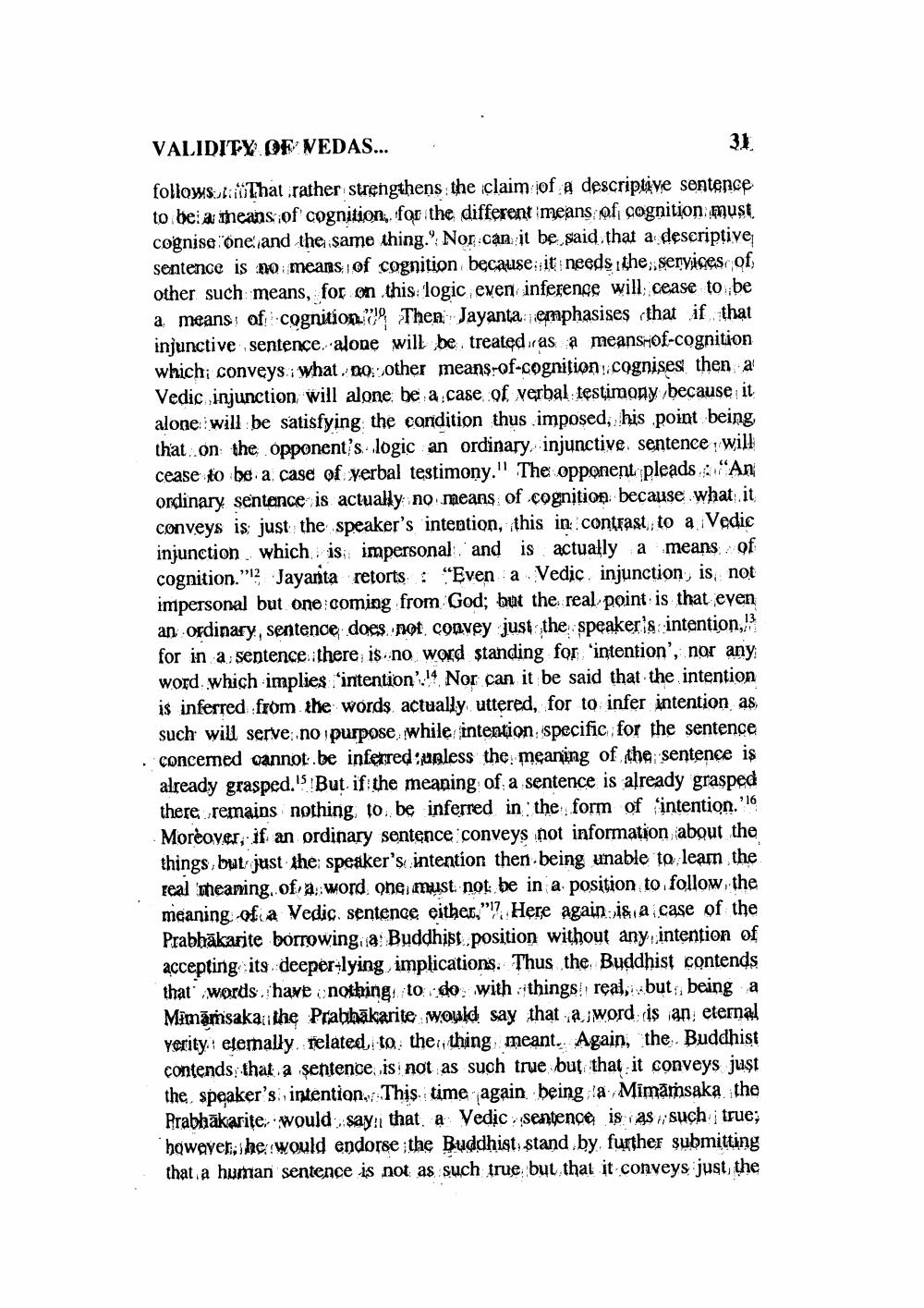________________
VALIDITY OF NEDAS...
31.
follows tüThat rather strengthens the claim of a descriptive sentence to be a means of cognition for the different means of cognition must cognise one and the same thing." Nor can it be said that a descriptive sentence is no means of cognition because it needs the services of other such means, for on this logic even inference will cease to be a means of cognition. Then Jayanta emphasises that if that injunctive sentence alone will be treated as a means-of-cognition which; conveys: what. 00::other means-of-cognition.cognises then a Vedic injunction will alone be a case of verbal testimony because it alone will be satisfying the condition thus imposed, his point being that on the opponent's logic an ordinary injunctive sentence will cease to be a case of yerbal testimony." The opponent pleads & An ordinary sentence is actually no means of cognition because what it conveys is just the speaker's intention, this in contrast, to a Vedic injunction which is impersonal and is actually a means of cognition."'!? Jayanta retorts: "Even a Vedic, injunction is not impersonal but one coming from God; but the real point is that even an ordinary, sentence does not convey just the speaker's intention, for in a sentence there is no word standing for 'intention', nor any word, which implies 'intention'14 Nor can it be said that the intention is inferred from the words actually uttered, for to infer intention as such will serve no Ipurpose, while intention specific for the sentence concemed cannot be inferred unless the meaning of the sentence is already grasped. But if the meaning of a sentence is already grasped there remains nothing to be inferred in the form of intention.'16 Moreover, if an ordinary sentence conveys not information about the things, but just the speaker's intention then being unable to learn the real meaning of a word one must not be in a position to follow the meaning of a Vedic sentence either,"7 Here again is a case of the Prabhākarite borrowing a Buddhist position without any intention of accepting its deeper-lying, implications. Thus the Buddhist contends that words have nothing to do with things real, but being a Mimämsaka the Prabhākarite would say that a word is an eternal Yerity eternally, related to the thing, meant. Again, the Buddhist contends that a sentence is not as such true but that it conveys just the speaker's intention, This time again being a Mimāmsaka the Prabhākarite, would say that a Vedic sentence is as such, true; however, i he would endorse the Buddhist stand by further submitting that a human sentence is not as such true, but that it conveys just the




